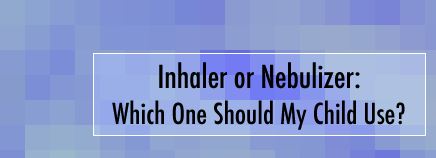
Some kids who need asthma medicine start out using a nebulizer. Others are given an inhaler with a spacer and face mask. Some older kids use only an inhaler, with no spacer attached. So which is the best way to deliver asthma medicine to the lungs?
Studies show that the device used really doesn’t matter, as long as it’s used properly. All methods work just as well when the correct technique is used.
Of course, there are pros and cons to each type of device. Inhalers are smaller and require no power source. And because they deliver the medicine much more quickly than a nebulizer, they may be preferred by some parents.
The age of the child also makes a difference in how an inhaler is used. Metered dose inhalers (MDI) are the most widely used, but they require coordination. The child must be able to activate the device and breathe in at the same time. This can be a bit tough and can generally only be mastered by older kids. That’s why many doctors recommend attaching the metered dose inhaler to a spacer.
Almost anyone (from infants to the elderly) can use a metered dose inhaler when it’s attached to a spacer. Some experts say that everyone with asthma, even adults, would benefit by using a spacer with their metered dose inhaler.
Dry powder inhalers (DPI) are easier to use than metered dose inhalers because they don’t require coordination. The force of the child’s inhaled breath delivers the aerosolized powder into the lungs. Most kids over 5 or 6 years old are able to use a dry powder inhaler, although they must be able to inhale quickly and strongly.
However, some people may feel like they get a better treatment from a nebulizer because they can see and feel the mist coming from the machine.
Your doctor will work with you and your child to decide which device is most appropriate. Besides your child’s age and abilities, the decision also will be based on what type of medication is needed. Your child may try several different types of devices before you find the right one.
Used properly, though, any device will be effective. Talk with your doctor if you have any questions, especially if you’re concerned that your child isn’t getting the proper dose of medicine.

